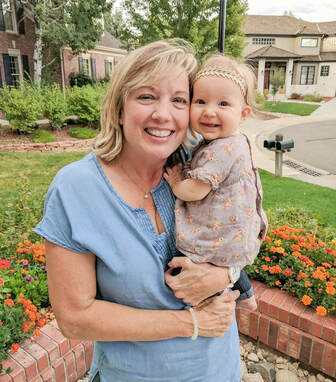Guest blog by Susan Huebner, Executive Director of Nurturing Newborns.
From the beginning of life, humans need humans. The parent-child relationship is crucial and affects learning, brain development, social-emotional skills, and mental health.
But what happens to these relationships when the child is born too early or with disabilities? How do families cope with the care of an infant that requires round-the-clock care? How can this relationship be nurtured when the baby is fragile, and parents are exhausted?
Nurturing Newborns defines a fragile infant or toddler as a child with delays, disabilities, serious illness, or issues from prematurity. In-home, specialized respite care for families caring for these children is a unique and rare support service. This service focuses on protecting and nurturing the parent-child relationship while providing specialized care of the child. This support is needed in the Denver early childhood community and beyond.
In April of 2022, the Journal of Developmental & Behavioral Pediatrics published an article on barriers to respite care.
“Increased understanding of parent-reported barriers to respite care for families of children with special health care needs is critical to creating structural and practice-oriented solutions.”
Parents of an infant or toddler with special needs often struggle to find appropriate help with the care of their child. This may be compounded by financial stress, depression or anxiety, concern about their child, and isolation. When these issues are combined with a single-parent household or a lack of a support system, early relationships may suffer.
Respite care for families in these difficult circumstances can encourage the parent-child relationship and provide quality care of a child with disabilities. It gives parents an opportunity to rest, seek mental health support, spend time with other family members, and job search. Respite care can provide space and time for parents to rest and develop skills needed to parent a child with delays and disabilities.
Nurturing Newborns is a nonprofit addressing the barriers to respite care for families with children ages 0-3 with special needs. Since 2008, respite care providers have been working in the homes of families in our community that are parenting a fragile child. Hundreds of families have benefited from a break during a challenging time. Respite care of fragile little ones and protecting the parent-child relationship has helped give these families a better beginning and a better future.
However, there is much more work to be done. Awareness, education, and financial support of respite care in our community is required to provide increased access. Conversations and education need to begin, and obstacles addressed so that new relationships can be protected in challenging situations.
Respite care for these fragile infants and toddlers during the first year of life should be part of the early childhood culture in Colorado. Everyone will benefit.
keyTakeaways
Nurturing Newborns defines a fragile infant or toddler as a child with delays, disabilities, serious illness, or issues from prematurity.
In-home, specialized respite care for families caring for these children is a unique and rare support service. This service focuses on protecting and nurturing the parent-child relationship while providing specialized care of the child.
Respite care can provide space and time for parents to rest and develop skills needed to parent a child with delays and disabilities.





